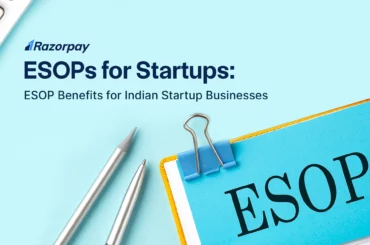A non-disclosure agreement or NDA is a written contract between two parties (people or organisations) that prohibits the sharing of confidential information shared between both the ends.
If you are running a business, or are about to start one, you know that there are numerous instances where you end up sharing confidential information with another party. And this fear of your data or information being misused sinks in. But hey, there’s a solution to this, just so that you can leave all your worries and focus on your business. It’s those three awesome letters: NDA or non-disclosure agreement! Read this article further to master the term and create a safe ecosystem for your business.
What is a Non-disclosure Agreement?
A non-disclosure agreement or NDA is a written contract between two parties (people or organisations) that prohibits the sharing of confidential information shared between both ends.
In a nutshell, if you are asked to sign an NDA, you are asked to promise that the sensitive information shared with you should not pass on to any other body or an individual. On the other hand, if you are the issuer of an NDA, you are asking someone else to not share the information with anyone, that you might share with them.
You can identify a non-disclosure agreement by other names like:
- Confidential Agreement (CA)
- Confidential Disclosure Agreement (CDA)
- Secrecy Agreement (SA)
- Proprietary Information Agreement (PIA)
Key elements of Non-disclosure Agreement
A few of the major elements of an NDA include (not limited to the following):
- Identification of the parties that are signing the agreement
- A precise definition of what is considered confidential under the agreement
- The clear reason as to why the information is shared and for what purpose
- An elaborated explanation as to how the shared information can and cannot be used
- Explicit information about the timeframe or the duration of the agreement
Types of Non-disclosure Agreements
Generally, there are three types of NDAs:
- Unilateral NDA: In this type of NDA, two parties are involved. Out of the two, only one party discloses confidential information and expects the other party to prevent the information from any further disclosure.
- Bilateral NDA: In this type of NDA, two parties are involved and both the parties disclose confidential information to each other with an intention to protect and secure the information from external parties.
- Multilateral NDA: In this type of NDA, three or more parties are involved, out of which one of the parties discloses a piece of confidential information and the other parties promise to have that information protected from any further disclosures.
When do you need a Non-disclosure Agreement
There are multiple instances when you might require to sign an NDA for your business. A few of them include:
- While entering into a business deal: If you are inviting a vendor or a consultant and want to ensure that the information you share does not go out, signing an NDA is the best option. In early-stage startups and some information sensitive companies, it is a brilliant idea to make each employee sign an NDA. This helps in ensuring that something as simple as the strategies, projected numbers and funds do not go out of the ecosystem.
- While starting a new project: Let’s say you are an established business and planning to start off a new project. This would require the involvement of both internal and external stakeholders. It is advised to sign off an NDA so as to avoid any ambiguity or claims that may arise from either end at any point in time.
- While talking to investors or during mergers and acquisitions: This was a very common practice in the past. However, modern-day investors deny to sign NDA at a very early stage and hence, the practice is becoming obsolete now. At a point when the need arises to look inside the papers and numbers and the communication reaches the advanced stage, a request to sign an NDA can be made. This should carry clear justifications as to why signing an NDA is needed. Same goes with the process of mergers and acquisitions.
Benefits of Non-disclosure Agreements
Here are some of the major benefits of an NDA:
- Since NDA is a legal document, it is of immense importance for any conflict that might arise in the future. Any party infringing the agreement would be legally liable to compensate for damages.
- It clearly states (in written format), anything that comes under the bracket of ‘confidential’, in the long run avoiding any ambiguity or loss of information.
- It maintains the secrecy of the information shared between two or more parties and reduces the chances of important information going out of the organisation.
- Overall, it protects disclosures of intellectual property (including trade secrets, proprietary information and other confidential information), safeguarding the organisation as a whole.
Precautions while creating and signing a Non-disclosure Agreement
While you go ahead and create an NDA for your business processes, here are a few things you need to take care of:
- Ensure that all the information mentioned is precise and the language used is simple and unambiguous
- You must make the involved parties read the entire NDA and verbally explain it. This will help in avoiding any further misunderstandings
- Do not involve non-required clauses or use conflicting sentences while drafting the document
- Make sure that the document has an expiration date and if need be, renew the same if required
What happens if any clause from the Non-disclosure Agreement is violated?
At any point, if you discover that any confidential information covered under a clause of the NDA is being shared publicly, it is crucial to quickly gather evidence against the action. Get answers for questions like who has leaked the information, how have they leaked it, what is being done with the information and so on. The next step is to hire an attorney familiar with business nature and further follow the legal road.
With this, you are all set to safeguard your business and its details by drafting a quality NDA in place. NDA comes under the bouquet of the little things that build the prerequisites of any successful business.
So the next time you are about to kick off with a new strategy, use the above-mentioned points and keep securing your business while you grow!
Also read: All You Need to Know about Balance Sheets
Frequently asked questions
What is the purpose of an NDA?
Companies and startups use these confidential documents to ensure that their ideas, strategies, and other forecasts won't be stolen by the people they are negotiating or working with.
What happens if you break an NDA?
If an NDA is breached, the breaching party will face the threat of being sued and could be required to pay financial damages and other related costs as well, as per the terms agreed in the NDA.
What is the full meaning of NDA?
A non-disclosure agreement or NDA is a binding (legal) contract in which the parties are legally bound to withhold confidential information for a set period. In business, the information covered by an NDA can vary from information on products and services to sales figures and customer insights.
What does an NDA cover?
Since an NDA includes confidential information in a binding legal contract, some agreements include a clause restricting employees' use and dissemination of company-owned confidential information for some time.
How much does an NDA cost?
There is no fixed cost incurred while issuing or signing an NDA. The cost of getting an NDA ready can vary, depending on the complexity of what needs to be protected and the number of parties involved in the agreement.
Can an NDA be used in court?
Non-Disclosure Agreements are powerful in establishing a paper trail of confidential information as it relates to partnerships, and discouraging partners from misappropriation of confidential information. But in most cases, paper evidence such as an NDA does not hold up in court.
How do I prepare an NDA?
You can draft an apt NDA by following the steps below: * Specify the contact information for the parties involved * Note down the details about the confidential information that needs protection * Specify the permitted uses of the confidential information by the recipient * Time restrictions for keeping information confidential should be revealed * The reason for disclosure should be specified




6 Comments
whoah this blog is wonderful i love reading your articles. Keep up the good work! You know, lots of people are hunting around for this info, you can help them greatly.
Thank you, Aisha! Stay tuned with us for more of such articles.
Madam,
It is a wonderful piece, like it helped me clear all my doubts regarding the topic. Even I worked on an article relatable to this topic, thus, it was more of use to me with accurate, simple, and unambiguous features.
Thank you. Keep Writing! Good luck!
Thank you, Atisha!
I just want to tell you that I am new to blogging and site-building and honestly savored this web site. Very likely I’m likely to bookmark your site . You certainly have superb articles. Regards for sharing your web page.
Thank you!